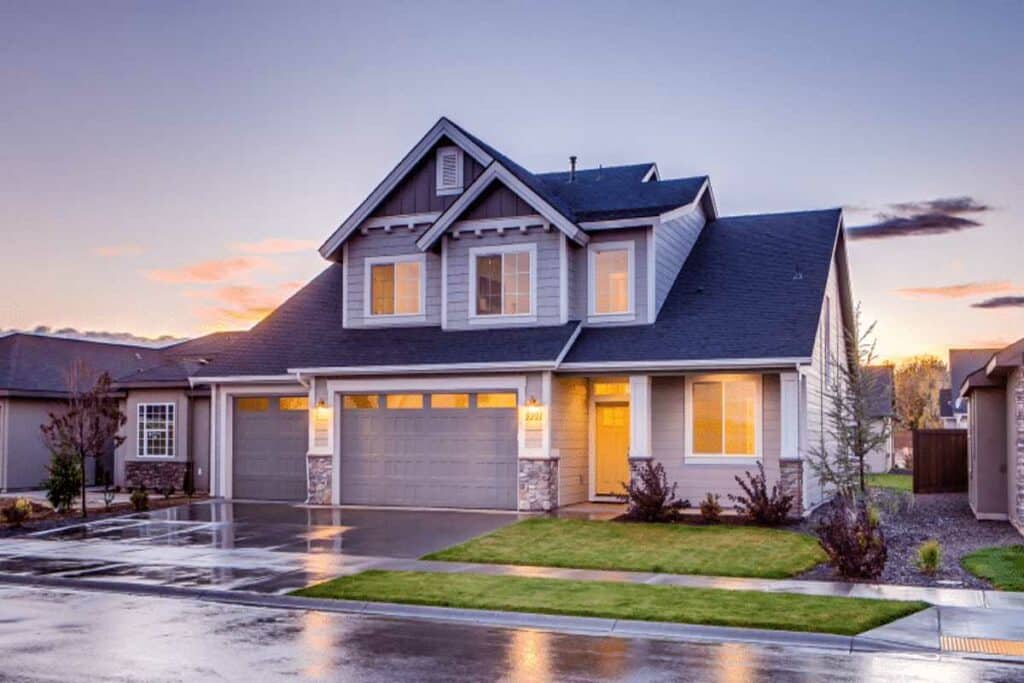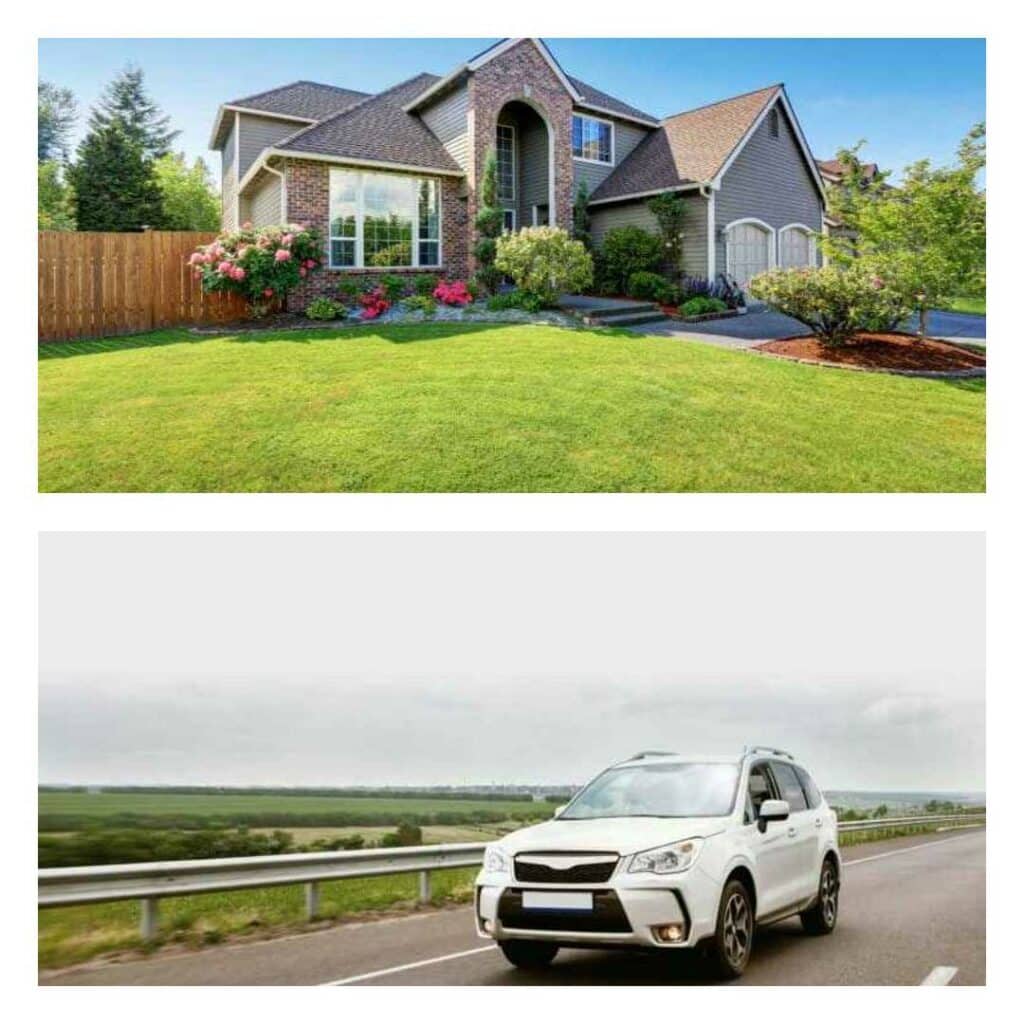A home is the most significant investment many of us will make in our lifetimes. It is also our sanctuary, our place of refuge, and the one place we know we can be completely ourselves. Protecting your castle is of the utmost importance, which is why home insurance is one of the fundamental purchases of homeowners everywhere. Home insurance provides a safety net to shield your most cherished asset from unforeseen events like natural disasters, fires, theft, burglary, and liability claims.
The cost of homeowners insurance varies, and understanding home insurance rates and how they are calculated can be a game changer to securing the best premiums. Insurance costs vary significantly from one person to another; in this comprehensive guide, we will explore the multiple elements that play a role in determining your home insurance rates and empower you to secure the right coverage at the best possible price.
Factors In Determining Your Home Insurance Rates
1. Home Value & Replacement Cost

The market value of your home and its replacement cost are primary factors in determining your home insurance rates. While these two values may seem similar, they are separate figures that serve distinct purposes regarding home insurance rates.
Market value is the estimated worth of your home and property based on the current real estate market conditions. In total, it accounts for location, supply and demand in your area, and the overall health of the real estate market. Therefore, market value is significant when considering buying or selling your home; however, it does not directly determine your insurance premiums.
Replacement cost is the amount of money it would take to rebuild your home from the foundation in the event of a total loss. Replacement cost indicates home insurance rates, as it directly influences the coverage you need. If your home has a higher replacement cost due to factors such as ample square footage, home features, or high-quality materials, your insurance premiums will reflect that. These insurance premiums are higher because your home represents a more substantial financial risk for the company.
2. Location & Associated Risks
The geographical location of your home is another critical factor that impacts your home insurance rates for several reasons. First, homes located near emergency services typically receive lower insurance quotes. This quick access to fire stations, police departments, and hospitals reduces the likelihood of extensive damage in case of a fire, burglary, or other emergency due to rapid response times. Homes without easy access to emergency services could suffer more damage in an unforeseen event; therefore, their rates will be higher.
The second geographical factor that plays into home insurance rates is regional risks, such as climate and natural disasters. Areas prone to flooding, earthquakes, hurricanes, tornadoes, or other severe weather events tend to have increased premiums. Living in areas susceptible to specific risks can also require additional coverage, raising premiums. For example, while you may not have hurricane risks in Colorado, the dry climate and susceptibility to wildfires mean homeowners pay a higher premium and usually need extra fire protection.
3. Home Age & Construction
The age of your home and the materials used in its construction can also impact your insurance premiums. If you want the charm of an older home, you may have to pay for it on your homeowner’s insurance rates. Older dwellings may have outdated electrical, plumbing, or heating systems, which pose a higher risk of damage or failure and often more expensive replacements. Construction materials also play a part – homes with fire-resistant materials like brick or concrete receive lower premiums, as they are less likely to be damaged and need significant replacements.
4. Security & Safety Features

Increased security and safety features can positively impact your home insurance rates. Insurers often offer discounts to reward homeowners with home security systems such as burglar alarms, motion detectors, and video surveillance, as all of these measures can deter criminals and reduce the risk of theft. Similarly, insurance companies provide discounts to homeowners who install smoke detectors and fire alarms as they help in the early detection of fires and minimize damage and risk to inhabitants.
5. Your Personal Claim History
Your past insurance history can help you secure a lower home insurance rate. If you’ve filed multiple high-value losses in the past, you could be viewed as a high-risk client for insurance companies, meaning your premiums will increase. As a homeowner, you should balance utilizing your insurance when necessary and minimizing claims for minor incidents you can handle without involving your provider. This keeps you covered yet ensures that filing many claims doesn’t impact your rates in the future.
6. Larger or Smaller Deductible Amounts
You can choose between a high or lower deductible when shopping around for home insurance. Your choice of deductible amounts can significantly impact your rates – the deductible is the amount you are responsible for paying before your insurance policy covers a claim. Your deductible amount is related to your premiums – if you have a higher deductible, your monthly or annual premium costs will be lower. Conversely, your premiums will likely be higher if you have a low deductible. However, choosing a deductible amount you can comfortably afford is crucial in the event of an unexpected claim.
7. Potential Bundling & Discounts

Insurance providers often offer a discount for bundling multiple policies with their company, such as home and auto insurance. Bundling your policies helps you save money and simplifies your insurance management by giving you a one-stop shop for all your needs. Providers may offer other discounts to homeowners based on factors like good credit, loyalty to the same company, or even eco-friendly home features. Working with a professional insurance broker can help you explore these opportunities to reduce your rates.
Understanding the factors influencing your insurance rates empowers you to take proactive measures to secure the right coverage at the best price. One of the best ways to do this is to work with a professional insurance company. A seasoned pro will consider all the factors that could influence your rate and revisit your coverage periodically to ensure it aligns with your current needs at the optimal rate. Learning about home insurance and working with a trusted provider helps you enjoy peace of mind, knowing you have comprehensive protection for your home and loved ones, no matter what happens!
How Harvey Insurance Can Help
Are you searching for new home insurance coverage? Harvey Insurance Pasco is here to help! Whether you are a first-time home buyer or a homeowner with changing needs, our team of insurance pros will help you find a policy tailored to your specific requirements. Working with an insurance professional helps empower your home insurance decisions with expert insights and options such as bundling and price shopping. Contact Harvey Insurance today to consult with one of our experts for the perfect policy and protection for your home!

